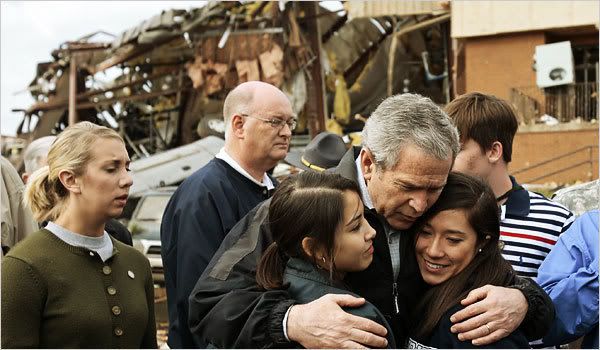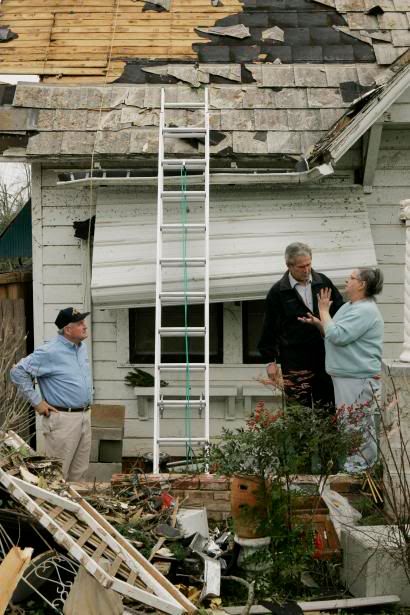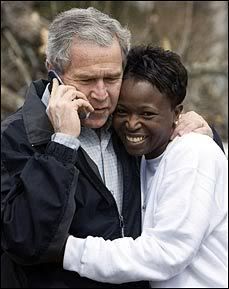Command Responsibility At Walter Reed
I've posted a couple of comments about the
Commanding General at Walter Reed getting fired after the Washington Post article on the deplorable conditions that our wounded warriors have had to endure. I figured I may as well post those thoughts back here too so address some of the discussion.
On
milblogs I wrote: "My expectation would be that their CSM should be the next to go. (Speculation: Unless he's the one who orchestrated the press story after a year of pounding on the CG's desk... trying to get this fixed... in my old CMC way of thinking, that's the only chance s/he would have of staying)"
On
Rantburg, someone mentioned that it wasn't the CG "
Since the creation of the Installation Management Agency, base commanders do NOT control monies for facilities construction, repair or management." and another commenter wrote
"It's a real shame they're making a scapegoat of the Commander there and degrading the reputation of this hospital and everyone associated with it; but that's what the Washington Post and its minions do best I guess."I respond that "There may be some truth to the assertion that it's IMA's facility. If so, then fire the garrison commander too, dissolve IMA, and give the posts back to the commanders. It was a novel idea, but poorly executed and underfunded from the start. As far as the comment "It's a real shame they're making a scapegoat of the Commander there..." I disagree. - when you fire junior officers and unit NCO's that's scapegoating. When you relieve commanders, that's accountability."
While I got some support on that account, another commenter still felt it was scapegoating.
Without going all philosophical. When a ship runs aground, who gets fired - the people running the ship or the skipper? When you have a "command climate issue," who gets fired - the leading petty officers and the division officers, or the skipper and the CMC? When an IG finds derelict facilities and hazardous living conditions - who should go - the BEQ manager or the skipper?
This was not something hidden. This was not some corrupt supply officer cooking the books behind closed doors. It was not some senior NCO quietly boinking soldiers he should have been taking care of. It was known. It wasn't fixed. It was accepted as the status quo. Only problem is that any reasonable person should have found it unacceptable.
This was the kind of situation that you put your anchors/chevrons/oak leaves or stars on the line for. The leadership failed to do that.
Yes, other folks can be held to account. Yes, there were failures through out the chain of command. But when the chain of command fails, responsibility rests with the Commanding Officer. Period.
UPDATE:
My point exactly.
UPDATE: 3/8/07 Cdr Salamander has pulled some
choice quotes from Gen Riley's testimony. My God! How could anyone who think's like that be a flag officer?
Shameful. I'm not saying that a CG needs to do barracks inspection, but when on active duty I had some opportunities to brief a few flag officers. One of the things that impressed me about the good ones was their ability to ask questions and drive quickly down to your level of uncertainty. The Navy flags, I thought, had an incredible ability to cut through the bullshit (the difference between the face-time-hungry LT giving the presentation and that salty First Class dirsup operator) and arrive at the level certainty for a given situation. I figured that was the flag officer's job. Gen. Riley failed do his job. Why is he not retired yet?




